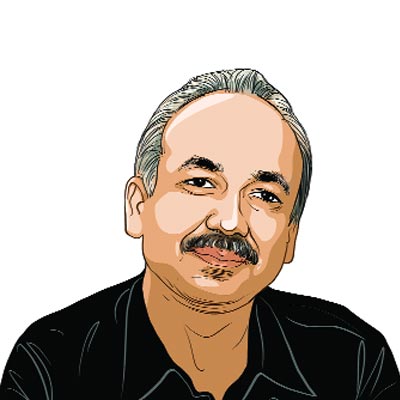Opinion Message from Berlin
Acceptance of Maoists as a pro-democracy party depends on what they do
Acceptance of Maoists as a pro-democracy party depends on what they do
Germany is a major stakeholder in Nepals development and peace process,and enjoys a reputation distinct from that of other big powers. It has contributed 14 million euros to the management of cantonments,the home of Maoist combatants for nearly three years,which are now being dismantled,and another 10 million euros through the Nepal Peace Trust. The thrust of its assistance has been mainly the promotion of grassroots democracy,local self-government and healthcare. Unlike the US and some other European countries,Germany has not involved itself in ethnicity or caste politics in Nepal.
Yet,recently,the German state secretary for the ministry of economic cooperation and development,Gudrun Kopp,who was visiting Nepal,did something that baffled the government in general,and Prime Minister Baburam Bhattarai in particular. With Germanys Ambassador to Nepal Verena Gräfin von Roedern beside her,Kopp invited family members of two victims of Maoist brutality during the years of conflict and asked them to tell their woes and make their demands before the media.
Punimayas husband Arjun Lama and Suman Adhikarys father Muktinath Adhikary,a high school headmaster,were kidnapped and killed by Maoists. However,Bhattarai is determined to save the culprits,calling them crusaders of political change. Kopp gave a message loud and clear that Germanys future cooperation will depend on how Nepal pursued cases of human rights violation and brought the guilty to justice.
However,in less than 48 hours,Bhattarai showed he was not bowing to German pressure as the cabinet withdrew over 360 cases of human rights violations,including the one on Adhikarys killing. Others who benefited from this general amnesty were leaders and activists of the Madhesi parties partners in the current coalition.
There is a possibility that Roedern,currently dean of the diplomatic corps,may raise the issue with other stakeholders,including the Scandinavian countries and the EU. But Bhattarai is hopeful he would be able to convince the larger international community that reopening human rights violation cases or having them referred to the soon-to-be-formed Truth and Reconciliation Commission for serious investigation would adversely affect the post-conflict healing process. The Unified Communist Party of Nepal-Maoists (UCPN-M) does not want any of its leaders or cadre punished for human rights violations during the conflict. After all,everything they did was part of a revolution that has catapulted Bhattarai to the prime ministers chair now.
And Bhattarai knows that despite Germanys rise in Europe,there are more important international stakeholders in Nepal. UN Secretary-General Ban Ki-moon will be coming to Nepal on a three-day visit beginning April 28,ostensibly to participate in the international seminar on Lumbinis development,hosted by a high-powered official committee that includes Maoist chief Prachanda. Nepals peace process and human rights situation,as well as the progress in constitution-writing,are likely to be closely monitored during his presence. At the same time,there is pressure on Ban not to share the dais with Prachanda until and unless the latter shuns the politics of violence,and his party-led government pursues human rights cases seriously.
If Ban Ki-moon is to co-chair a high-profile meeting with Dahal [Prachanda,he must first insist that Dahals party officially renounce the use of violence in politics in the spirit of the Charter of the United Nations. The Secretary-General co-chairing such a conference at a holy site would be a sacrilege insulting not just peace-loving Nepalis but millions of Buddhists around the world, said Kul Chandra Gautam,a former assistant secretary general at the UN. Given the controversy,there are doubts if Ban will come at all,but either way it is obvious that doubts and concerns over the conduct of the peace process and constitution-writing are increasing under the Maoist leadership.
I am under siege. Political parties are conspiring to have me out,but I will not quit under any circumstances, said Bhattarai during the meeting of the constitutional committee recently. His I wont quit message came a week after he warned through a nationwide televised programme that hundreds and thousands would perish if any obstruction was posed to the peace and the constitution-making process. Bhattarai is trying to assert his indispensability for the success of the twin processes with the fear of a bloodbath. But his inability to take the processes in the desired direction,at the desired pace,has cost him his credibility,at home and abroad. Prachanda and Bhattarais clever move to secure a positive certificate from the UN secretary general,as in the past,does not seem to be working. And Germany,a distant player,seems to have taken the lead in handing out a message that the acceptance of Maoists as a pro-peace and democracy party will depend on their actions,not what they say any more.
yubaraj.ghimire@expressindia.com


